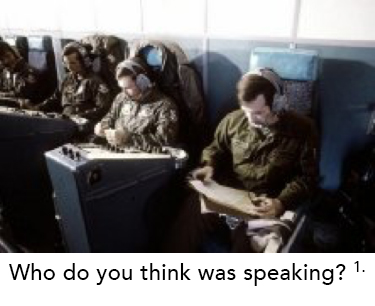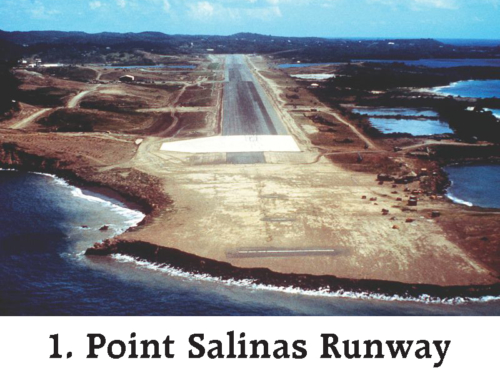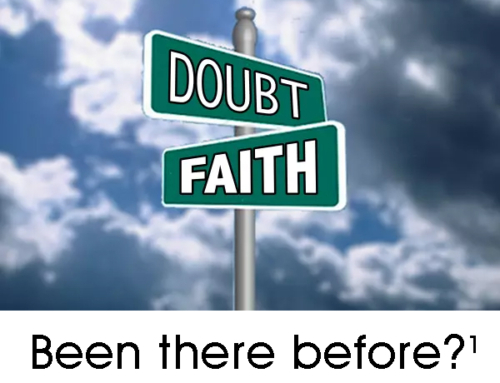If it wasn’t for people. . . Leaders wouldn’t have to pray about difficult situations.
Have you “the leader” ever found yourself in a position where you ask, “how did I get here.” Or more important, how are we going to solve this problem; all options are terrible. I’ve been there, you’ve been there. What do you do to resolve a situation that in almost all cases will have an impact upon people, maybe the same people that put you in a tough situation to begin with?
One of the toughest situations I’ve ever found myself in was during our intervention in Grenada in October of 1983 where we were charged with rescuing over 750 American medical students. Planning for our task force and all its elements was extremely compressed. Intelligence was nearly nonexistent, or incorrect and our higher combatant command headquarters had no idea of how to employ our very special force of special operators to include the requirements for surprise and a lengthy period of darkness.
I was the task force air component commander responsible for the insertion of our Rangers, SEALs, and Special Forces troops on to the island of Grenada. After a couple of days of planning where mission parameters were changed several times, it was time to go. I hadn’t even had the time to review the complete air plan for 65 different aircraft of multiple types that were required to secure several different targets. The most critical target was Point Salines Airfield near Saint Georges, Grenada. Our higher headquarters allowed us only 30 minutes of darkness to accomplish the insertions and we had no idea there was anti-aircraft artillery in position on the island. So, when I took my crew position aboard the C-130 Airborne Command and Control aircraft, I saw no way through this situation successfully. Lives and the nation’s reputation was on the line. The only thing I could do was pray. I told the Lord that only He could carry us through.
It wasn’t a surprise when things began to go awry. Our SEAL reconnaissance element, besides tragically losing three people, were unable to report on airfield conditions. This necessitated a decision to airdrop all our Rangers instead only dropping from the first two aircraft and landing the remainder as originally planned. Because of this decision, the Rangers had to inflight rig their parachutes and equipment, no easy task. Next, our lead MC-130 Combat Talon air aborted 15 minutes before H-hour requiring me to reorder the C-130 air flow. Then once the new lead aircraft arrived over the airfield they were met with a torrent of antiaircraft fire which again disrupted our airflow until our AC-130 gunships could silence the fire. While all this was taking place, aircraft were running low on fuel and the British Governor General, defended by our SEALs, was trapped in his quarters by Cuban armored personnel carriers. Our Special Forces had to attack a heavily guarded prison in broad daylight and one of our helicopters was shot down. Through all this, I was making decision after decision. I was continually on the command radio, but who was really speaking? Was it really me?
While we made many mistakes during this operation, it was favorably concluded. We rescued the medical students and our losses, while sad to each of us, were relatively few considering that we unexpectedly faced a couple of battalions of Cuban soldiers. So, in this case, the Lord answered my prayer in a most favorable way. He took over.
But there are a couple of significant questions: Why would you or I wait until a crisis to pray? If we did pray, to whom would we pray? Just the act of praying acknowledges a higher being or god. But what god would you pray to, or is there just ONE God, the only maker of heaven and earth?
This begets another question; must you know the ONE to expect an answer to prayer. I suspect that the Lord might choose to answer anyone’s prayers, but what the ONE would like more than anything is to have a personal relationship with you. To know Jesus, there is no better thing. This relationship not only solves the immediate problem for which you may be praying (the way you might wish or another more productive way), but it also solves the greater problem, that of always being in the presence of the Lord. So, knowing Jesus is the most important part of prayer and it may have been the reason for the crisis in your life in the first place. He loves you and wants you to choose Him.
So, why should you “the leader” wait until there is a crisis to pray? Pray now, daily and develop a fuller relationship with Him. Give Him the opportunity to change you. Give Him the opportunity to change others because you pray. So, what is the answer? As the Apostle Paul would say, “Pray without ceasing.” Pray and read His Word daily and then when the next crisis hits, perhaps it may not be a crisis at all.
So, was it me on the radio that day over the island of Grenada when everything seemed to be coming apart? To prepare my post-mission report, it took me two weeks listening to our command radio tapes to understand what had really gone on. My conclusion, no way, not me. I could never have put all that together; it was the Lord speaking through me.





